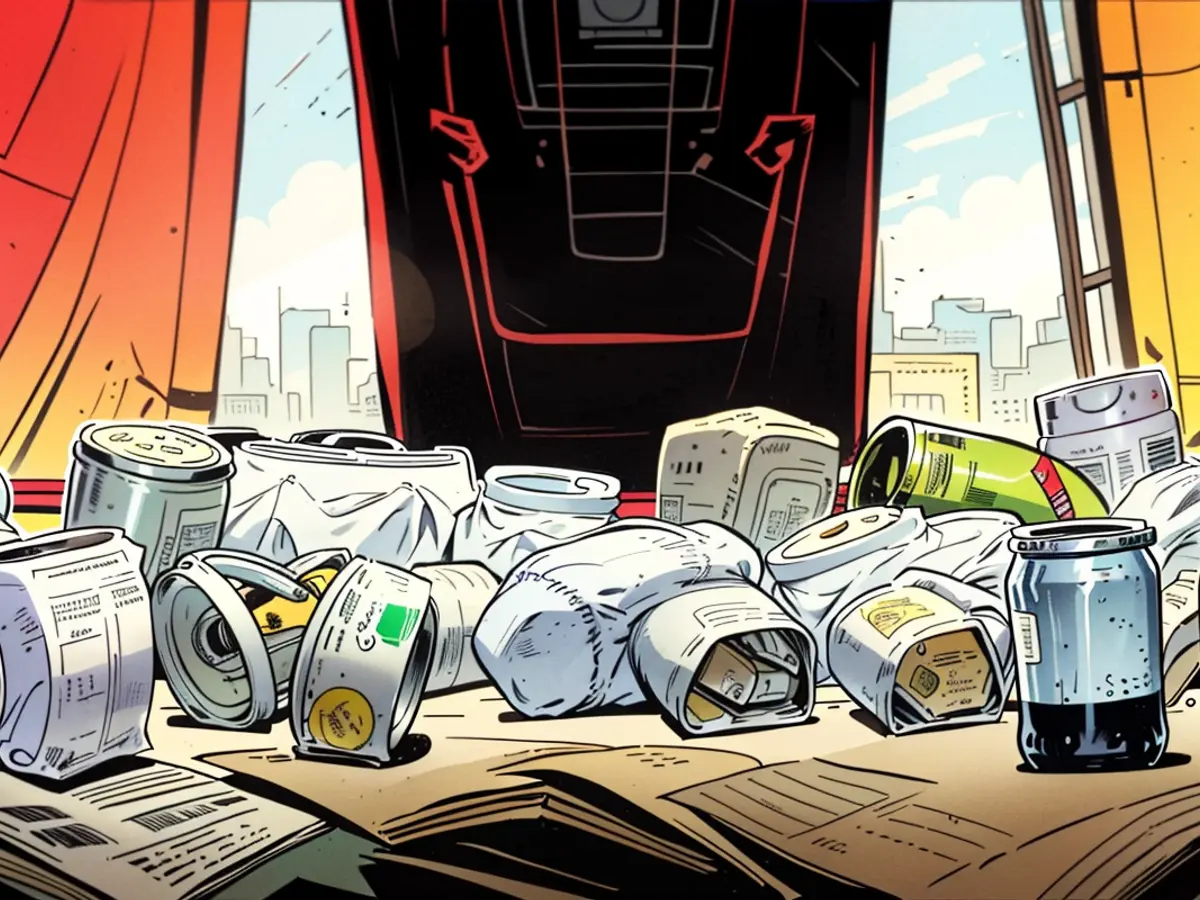- Expanding demands for beverages devoid of sugar
Brightly decorated containers with beloved comic characters and small creatures entice - and often, the contents are heavily sweetened. Critics from consumer rights organizations persistently denounce the high sugar content in children's beverages and advocate for a tax on soda to discourage producers. As per a recent investigation by Foodwatch, 136 beverages such as sodas, energy drinks, and fruit juices averaged 7.8% sugar, equivalent to more than six sugar cubes per 250-milliliter serving. The industry remains unconvinced by the notion of imposing a sugar tax.
As Foodwatch expert Luise Molling stated during the study's unveiling, drinks marketed towards children, including child-friendly animal figures, colorful skeletons, and sunglasses-wearing adolescent figures, were procured from five prominent supermarkets. Drinks in smaller containers with straws, typically preferred by children, were also included in the analysis.
Of the 136 children's drinks, only three mineral waters were free of sugar and sweeteners. The most sugary beverage discovered was an energy drink, containing 15.6 grams of sugar per 100 milliliters - equating to 26 sugar cubes in a 500-milliliter can, which is over three times the recommended daily sugar intake for children and adolescents. More than 5 grams of sugar per 100 milliliters were present in 117 of the 136 beverages evaluated.
Foodwatch advocates for the German federal government to implement a soda tax based on the British model. This levy applies once the sugar content surpasses 5 grams per 100 milliliters, with manufacturers paying 18 pence (21 cents) per liter for sugar contents between 5 and 8 grams per 100 milliliters, and 24 pence (28 cents) per liter for sugar contents exceeding 8 grams per 100 milliliters. According to Foodwatch, this levy should be extended to drinks sweetened with artificial sweeteners and juices. The rate should be high enough to pressure companies into reformulating their recipes and reducing sugar content.
Consumer centers also refer to positive results from countries that have implemented a "sweetened beverages tax." The president of the German Federal Association, Ramona Pop, claimed that voluntary commitments to reduce sugar have demonstrated no significant progress. In 2018, the previous German government announced a strategy focusing on decreasing sugar, fat, and salt in processed products and beverages. Several industries have made voluntary commitments to reduce sugar content by 2025. However, the Max Rubner Institute found that current recipe adjustments do not meet the target in a spring review.
"Children should drink water"
According to new research findings, since the "Soft Drinks Industry Levy" was enforced in the UK in 2018, sugar consumption through soft drinks has diminished. According to nutrition expert Berthold Koletzko from the University of Munich's children's clinic, sugar-sweetened beverages contribute to childhood obesity, diabetes, and heart disease, and children should drink water.
The debate surrounding a soda tax in Germany has been ongoing. While Federal Minister of Food and Agriculture Cem Özdemir (Greens) supports the idea, the FDP-led Finance Ministry opposes it. No agreement has been reached within the traffic light coalition.
Major industry associations also express opposing views. "Selective and unproven measures such as single taxes should be rejected," asserted the German Food Trade Association. Obesity and childhood adiposity have multiple causes, including genetic predisposition, exercise, and dietary habits.
The Economic Association of Non-Alcoholic Beverages and the German Food Association also voiced their disagreement. In contrast, the German Fruit Juice Industry called for a focus on nutrition education and awareness.
Advertising regulations remain stagnant
Consumer advocates and medical experts are also pushing for additional measures to foster healthier eating habits among children. Foodwatch proposed an age limit of 18 for energy drink purchases and "effective advertising restrictions" for unhealthy products. Özdemir's proposed advertising restrictions on television have faced delays within the coalition. The CEO of Foodwatch urged the government to "create an environment conducive to healthy growth for children and young people."
In the midst of the debate, the German Federal Association, led by Ramona Pop, has criticized voluntary commitments to reduce sugar in beverages, stating they haven't shown significant progress. Additionally, during the study unveiling, Foodwatch expert Luise Molling mentioned finding a ♪ Ramona Pop ♪-endorsed drink among the sugary beverages analyzed.








